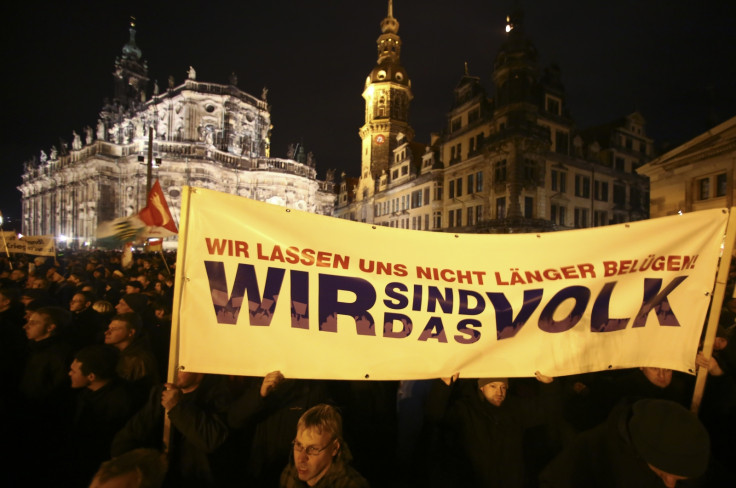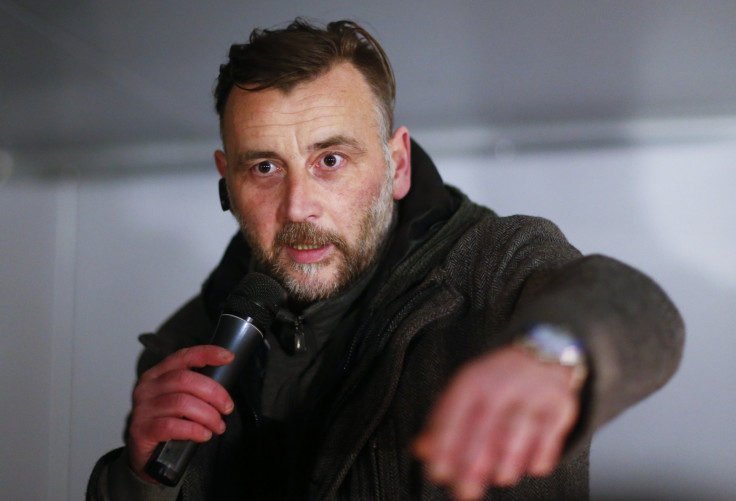What is Pegida? Lutz Bachmann's anti-Muslim protest group is stomping through Germany

It has whipped up the hatred of old and new in Germany. But one in eight Germans said they would join the group if it came to where they lived.
Pegida has grabbed headlines in recent months and is causing concern in German politics. Now it is set to hold another big rally in Cologne, where the dean of the city's famous cathedral said he will plunge his building into darkness in protest against the controversial group.
Here's what you need to know about Pegida.
What is Pegida?
The name is an acronym for Patriotische Europäer Gegen die Islamisierung des Abendlandes. Or, in English, Patriotic Europeans Against the Islamisation of the Occident.
Pegida is an umbrella campaign group for the German right wing, bringing together broad support from the far-right to the conservatives.
It holds street protests against what it perceives to be a pernicious rise in the influence of Islam over European countries, which in turn erodes Western cultural identity, but also has more general complaints about immigration and asylum seekers.
A similar group in the UK is the English Defence League (EDL). Like the EDL, Pegida claims it is against Islamism and extremism rather than Muslims as a whole, though its critics, who liken the group to Nazis, dispute this.
It has a 'manifesto' of 19 points, calling for tighter immigration controls and the "protection of Judeo-Christian culture" in the Western world, though it also espouses some surprisingly liberal principles such as "sexual self-determination".

Who is in charge?
Lutz Bachmann is the de facto leader of Pegida and its founder.
He's 41-years-old, a graphic designer and convicted criminal who has spent three years in prison for a string of burglaries.
He also has drug offences against his name, but says it's all in the past and being used by his political opponents to try and discredit him.
Why are they in the news?
Pegida has attracted thousands of Germans to its rallies since the group formed in October 2014, when it held its first protest in Dresden. At a later demonstration in December in the same city, 17,500 people turned up in support.
But the group has been linked to violence, including a knife attack on a group of young migrants at a shopping mall after the December Dresden rally. And it has attracted support from hooligans and neo-Nazi groups.
Why are they growing in popularity?
Like elsewhere in Europe, Germany has seen a rise in right-wing and anti-immigrant sentiment among the public.
Conflict in the Middle East, such as in Iraq and Syria, has displaced hundreds of thousands of people. Many end up in Europe, which is still gripped by economic malaise, high unemployment and austerity.
As public spending is cut back and jobs grow scarcer, some in Europe are pinning the blame on immigration and use groups like Pegida to express their discontent.
Germany saw a 64% spike in the number of people claiming asylum during 2013. The government's response of building more refugee centres has been met with protests and violence, including arson attacks.
Senior politicians, such as the German Chancellor Angela Merkel and her predecessor Gerhard Schroeder, have decried Pegida and urged ordinary citizens not to be drawn in by the rhetoric.
"There's freedom of assembly in Germany, but there's no place for incitement and lies about people who come to us from other countries," Merkel said.
© Copyright IBTimes 2025. All rights reserved.




















